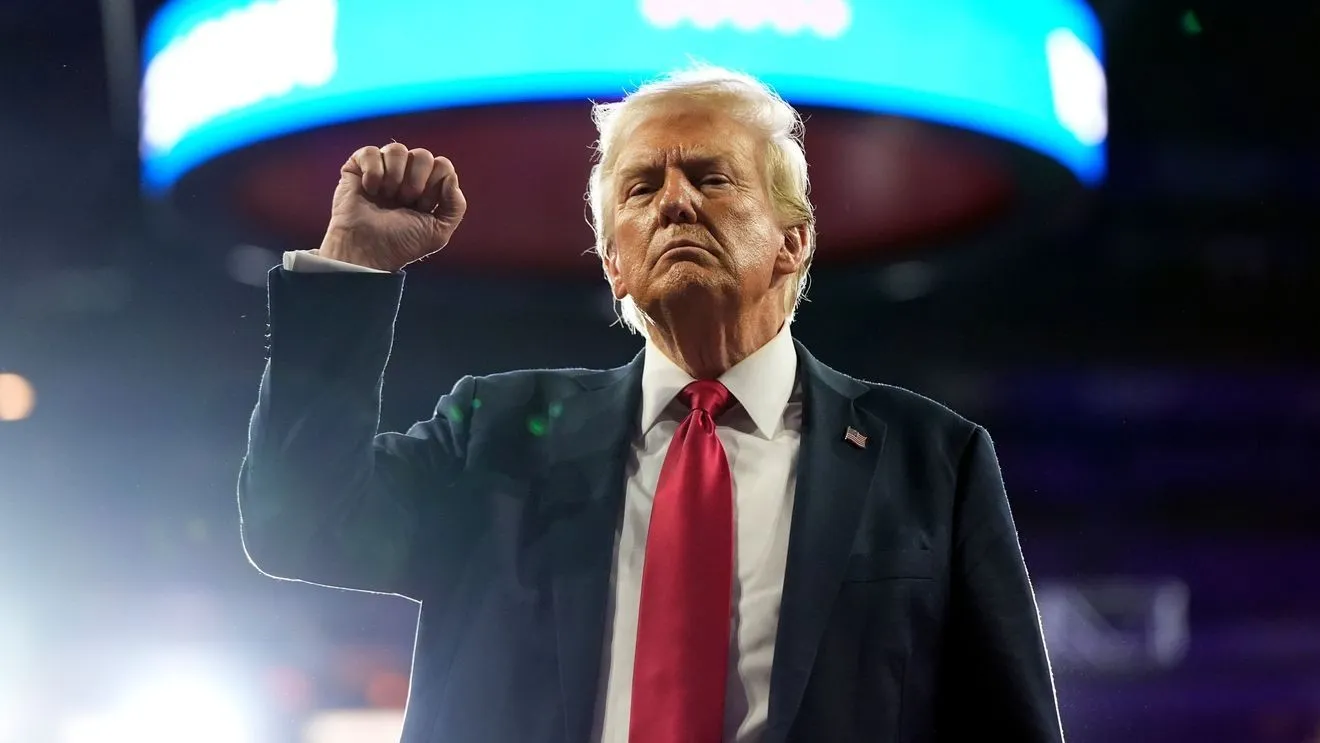President Donald Trump’s tariffs are giving global equities a surprising boost and in the process, they’re chipping away at the S&P 500 Index’s long streak of global dominance, at least for now.
For the first time since 2022 and the first time in a rising market since 2009 international stock markets are on track to outperform the broad U.S. equities benchmark. The main driver: concerns that tariffs and trade-related uncertainty will weigh more heavily on Corporate America’s earnings growth than on its overseas counterparts.
So far in 2025, the MSCI World Index excluding the U.S. has surged 18%, easily topping the S&P 500’s 7.8% gain. The outperformance becomes even clearer when looking at individual markets: Mexico’s main index has jumped 18%, Canada’s is up 12%, Germany’s has risen 21%, Spain’s has climbed 26%, Brazil’s has gained 14%, and the U.K.’s has advanced 11%.
This marks a dramatic shift from recent years, when U.S. stocks fueled by mega-cap tech giants and the promise of artificial intelligence posted outsized gains while many overseas markets lagged. That run left international equities trading at significant discounts compared to their U.S. peers.
“Sometimes the best returns come from the fixer-uppers,” said Craig Basinger, chief strategist at Purpose Investments Inc.
Basinger noted that the valuation gap between U.S. and foreign markets is “historically wide,” with global portfolios still heavily tilted toward U.S. stocks. That imbalance has started to correct in 2025, and the trend could accelerate as Trump’s tariffs take hold and trading partners in Europe, Canada, Japan, and other regions roll out pro-investor reforms and stimulate domestic growth.
“Rate of change matters in markets,” Basinger explained. “It looks like international markets, broadly speaking, are becoming more investor-friendly. The U.S. is still the gold standard, but if the performance gap narrows, the valuation gap could narrow as well.”
David Lambert, managing director and head of European equities at RBC Global Asset Management, added that long-standing “ultra-low growth” expectations for European and Japanese corporate earnings are beginning to shift.
“We’re entering a period where earnings growth could be modestly higher for the medium term,” Lambert said. “There’s no reason we couldn’t see a gradual rerating in the coming years from where valuations are now.”
That view is gaining traction among professional investors. In a June survey by BofA Securities, 54% of fund managers said they expect international stocks to deliver the best returns over the next five years, compared with just 23% who favored U.S. equities.
The core argument, according to David Groman, director of global equity strategy at Citi Research, is that Trump’s tariffs are likely to hit U.S. corporate profits harder than those in Europe or Japan. Citi’s latest note to clients highlights that Europe, in particular, is leading in both value and momentum metrics.
“In Europe or Japan, there’s more clarity investors can at least sketch out what they think the earnings impact will be,” Groman said. In fact, he noted that European markets have already priced in a worst-case tariff scenario, meaning the outcome could surprise to the upside.
Still, not all strategists are convinced this trend will be painless for global markets. Emily Roland and Matthew Miskin, co-chief investment strategists at Manulife John Hancock, warn that weakness in the U.S. often reverberates worldwide.
“Historically, every U.S. recession has dragged the rest of the world down with it,” they wrote in a recent client note, adding that investors should be cautious about low-quality, cyclical overseas stocks in this environment.
Even so, Basinger sees the shift toward international equities as a long-term rotation.
“Investors are simply overexposed to the U.S. right now,” he said. “This rebalancing could be a very long story.”

Subscribe to our newsletter!
As a leading independent research provider, TradeAlgo keeps you connected from anywhere.








